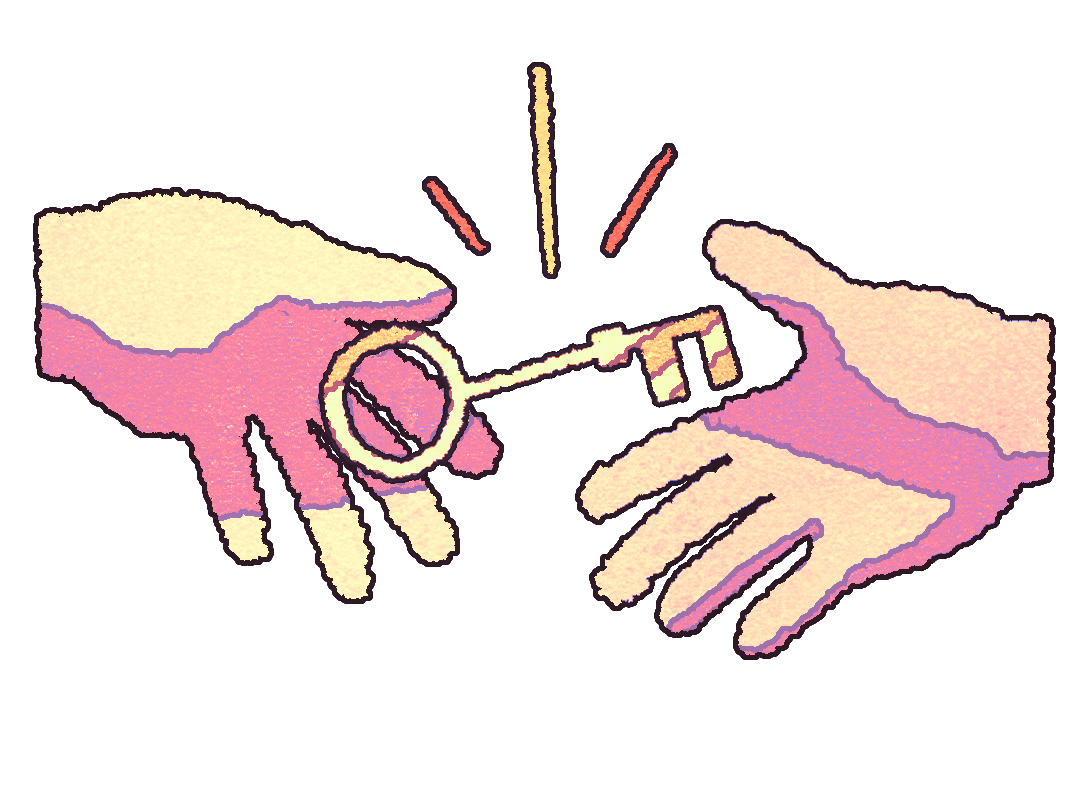
Recognize and Avoid Scams
There are lots of scammers on the internet that try to steal from you. You should always check for red flags to stay safe.
Sensitive data is information you don’t want anyone else to know. This data could be used to steal your identity, access your accounts, or take your money. You should be careful if someone asks for your…
- Name
- Birthday
- Address
- Passwords
- Bank or credit union account number
- Debit or credit card number
- Social Security number
Phishing is when scammers pretend to be someone they aren’t. They do this to trick you into giving them sensitive data. Scammers will pretend to be a friend or company you like and then hope you’ll send them this information. Phishing can happen through emails, texts, and even fake websites.
One common trick is to send you an email or text that says there’s a problem with your account or offers you a great deal. But the link to sign in or claim the offer is fake. Once you click it and enter your information, the scammer steals it. It’s always best to open websites yourself in another tab.

Some scammers try to scare you into paying them by pretending to be someone who can get you in trouble. They could say they’re a police officer, a debt collector, an IRS worker, or anyone who wants you to pay them right away. They do this so that you’ll do it before you have the chance to really think it through.
Some scams install viruses on your phone or computer. A scammer can then steal from you without you knowing. Viruses usually get downloaded if you click on a bad link in a popup, ad, social media post, email, or even a message from the hacked account of a friend or family member. You shouldn’t click on links someone sends you out of nowhere, especially if they don’t sound like themselves.
Affinity fraud is when someone pretends to be a part of a thing you like and asks for money. They may say they’re from a school, church, fandom, charity, or any other group you care about. If you want to support something, it’s best to do it through an official website to make sure the money gets to the right place.
If you see something that looks like a scam, the best thing to do is ignore it. Don’t answer calls from numbers you don’t know. Delete emails that look bad. Leave a sketchy looking site. Talk to an adult if you’re having a hard time telling if something is a scam or not.
If you’re worried you accidentally gave away money or information or downloaded a virus, reach out to an adult for help right away. You may need to bring the device to a professional. The next steps are to reach out to your financial institution and the FTC if you worry your identity has been stolen.
Neither Banzai nor its sponsoring partners make any warranties or representations as to the accuracy, applicability, completeness, or suitability for any particular purpose of the information contained herein. Banzai and its sponsoring partners expressly disclaim any liability arising from the use or misuse of these materials and, by visiting this site, you agree to release Banzai and its sponsoring partners from any such liability. Do not rely upon the information provided in this content when making decisions regarding financial or legal matters without first consulting with a qualified, licensed professional.